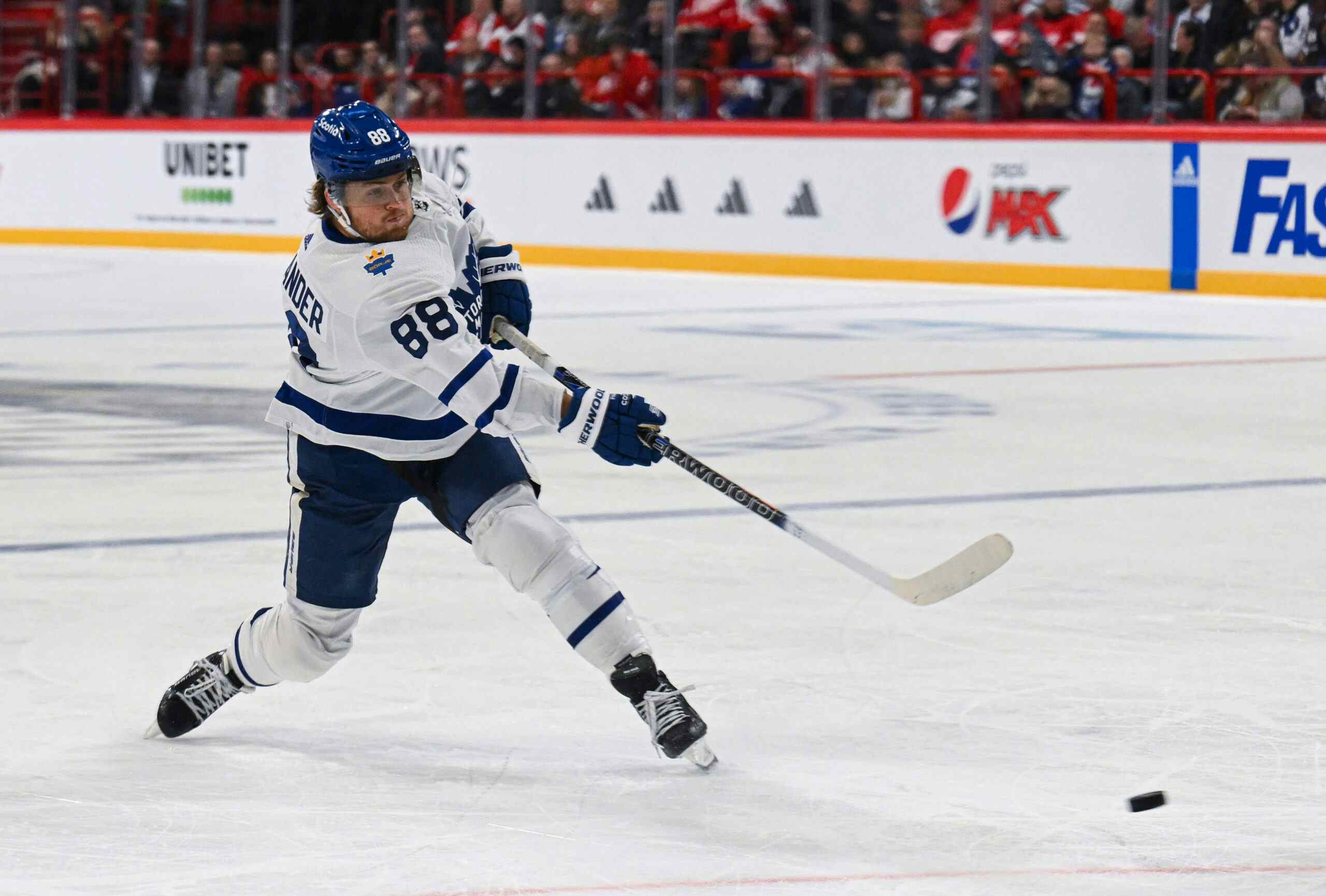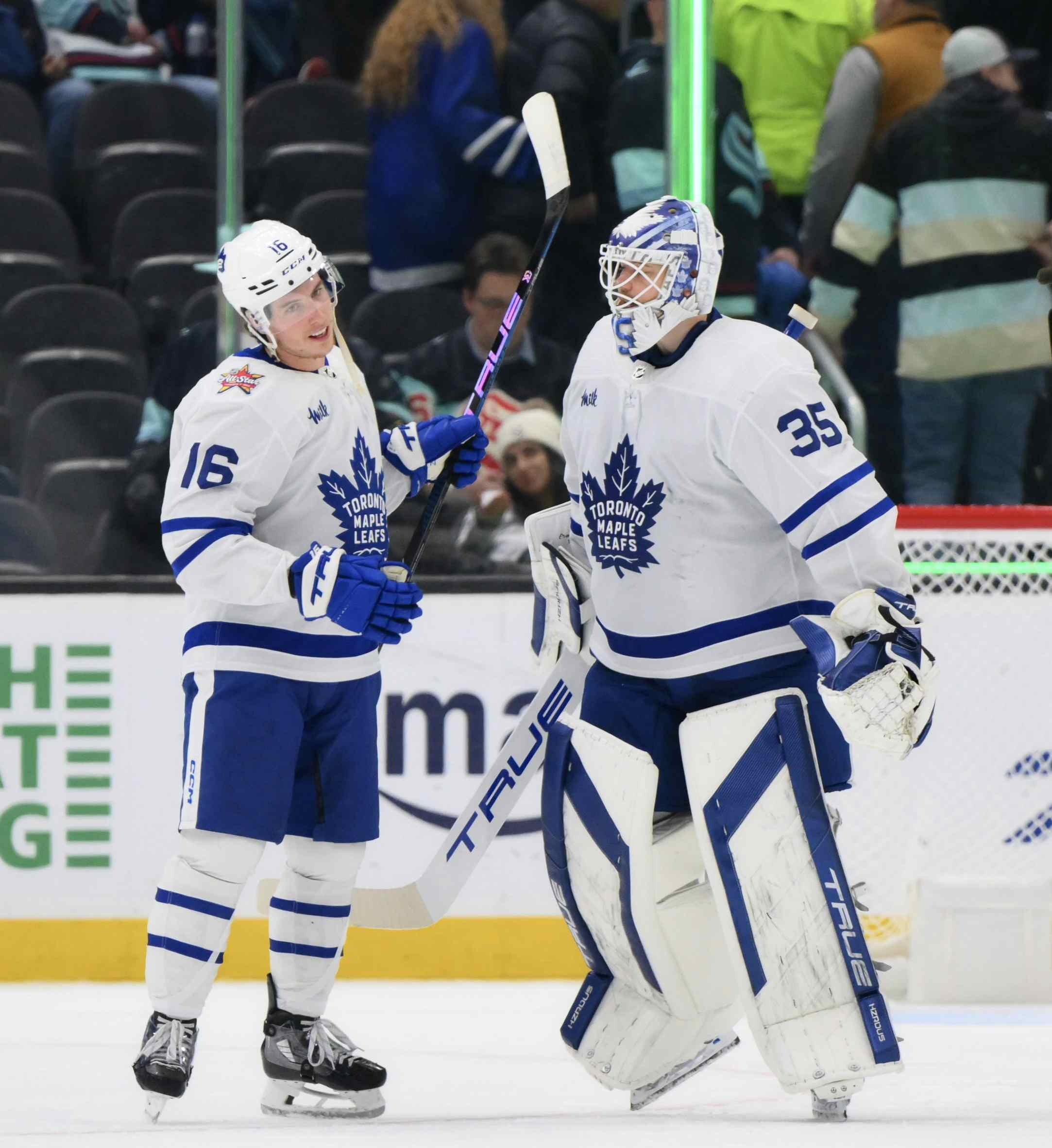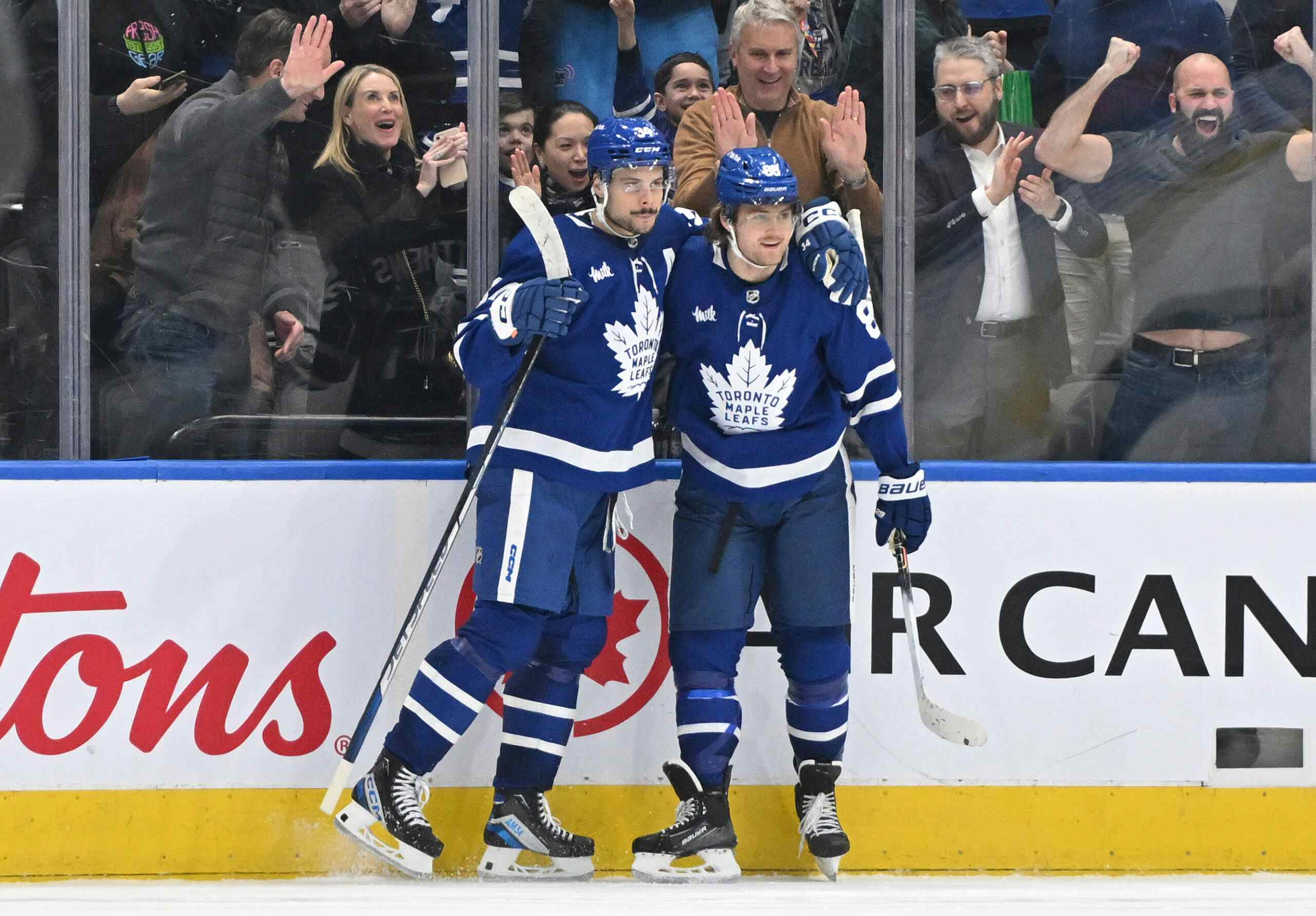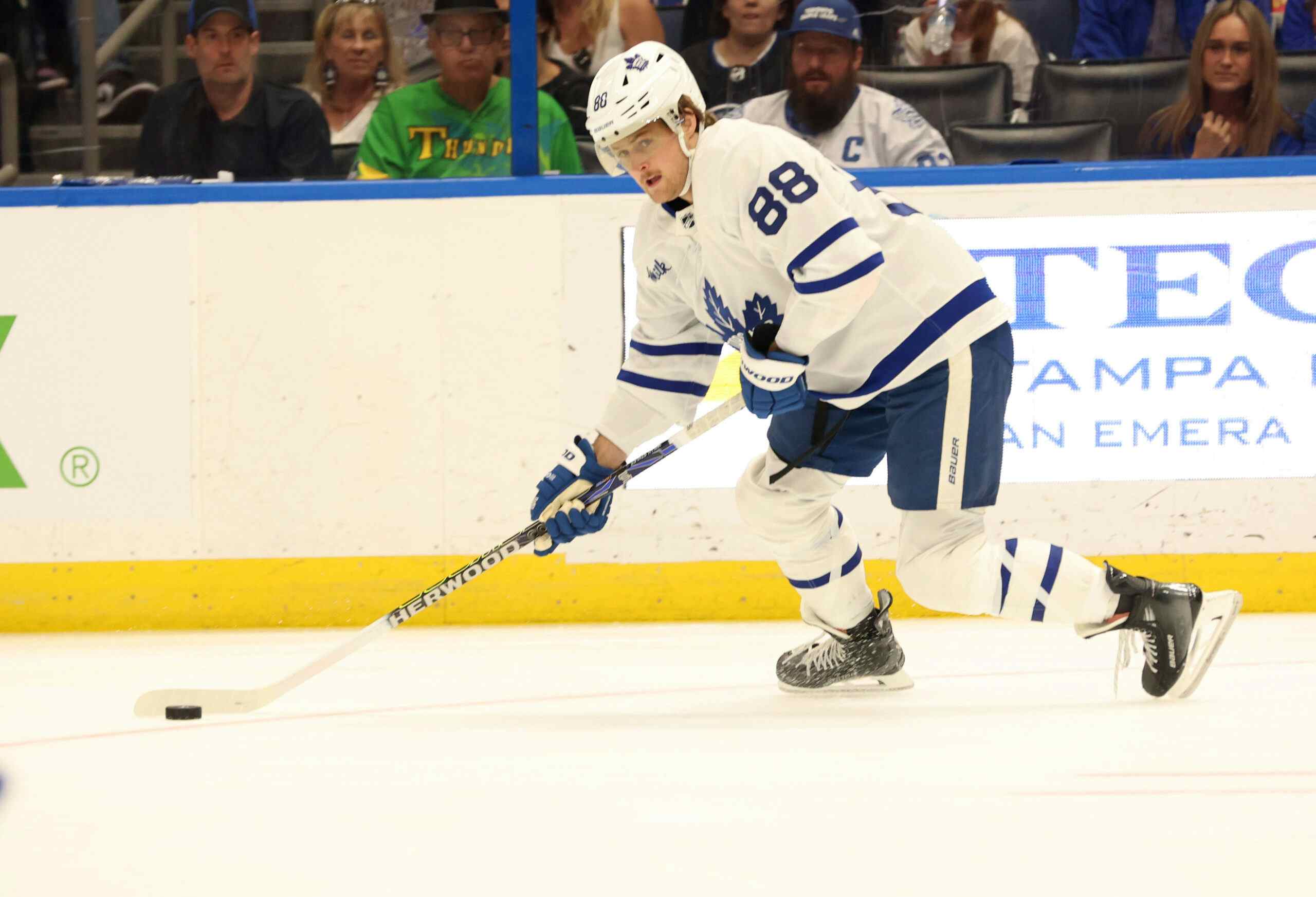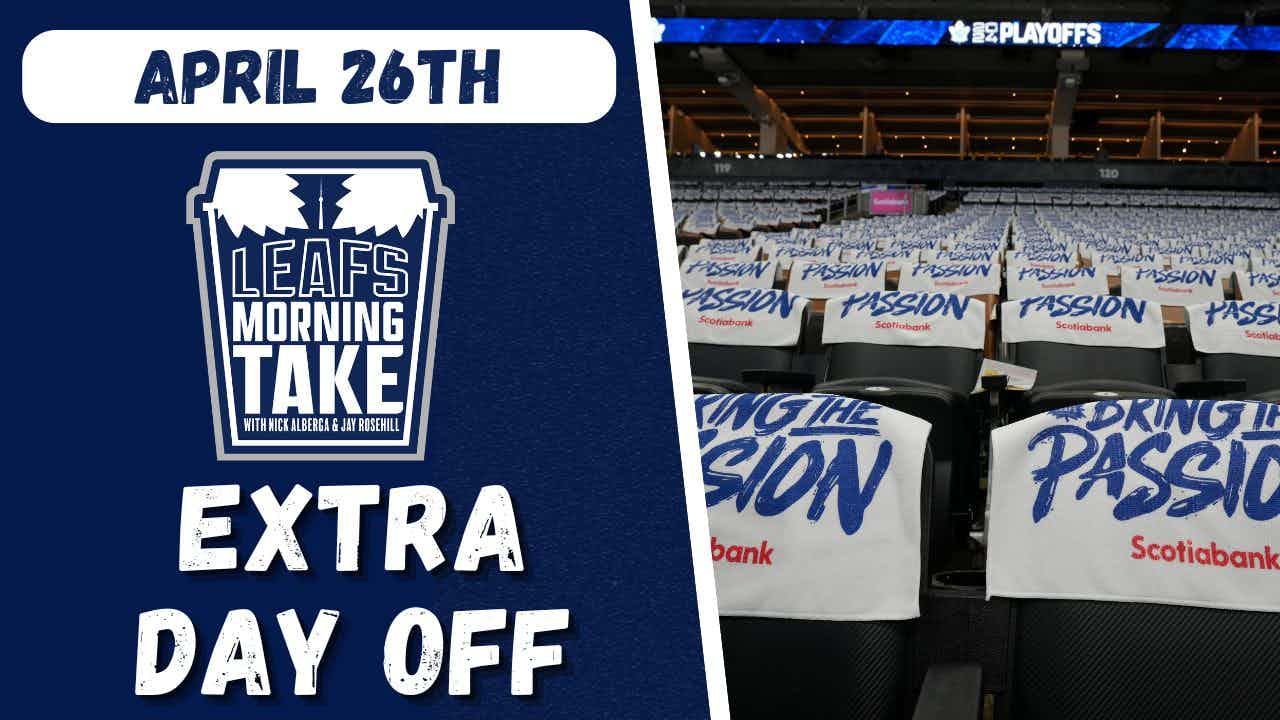JUNGLE B: THE ROAD TO THE NHL
By Jason Gregor
12 years agoGuns N’ Roses released their first album, Appetite for Destruction, on July 21, 1987. It contained one of the greatest dressing room/warm up songs you’ve ever heard, Welcome To The Jungle. Since 1988, many teams have psyched themselves up listening to Axl and the Boys, but one player actually used the "Jungle" as a springboard to an NHL career.
Maybe you are an alumni of the distinguised, "Jungle," but if not, you likely know someone who played Junior "B" somewhere in western Canada. It is normally reserved for players who had their professional dreams crushed by a junior "A" coach because of a lack of talent, or by players who loved the game, but knew their talents wouldn’t take them anywhere and choose to play with their buddies.
It is a league filled with skaters who never had a realistic dream of playing pro, nevermind the NHL, and they are okay with that, but one current NHLer’s path to the Show shows that maybe, just maybe, they shouldn’t give up on their dream.
JUNGLE GRADUATE

**Letestu scored the SO winner in Phoenix on Nov 06th, 2010***
In October of 2002, Mark Letestu was 17 and playing for the St. Paul Canadiens in the North Eastern Alberta Junior B Hockey League, yet seven years later he found himself in a Penguins’ uniform warming up at the Fleet Centre in Boston and wondering how he got there.
I sat down with Letestu on Thursday to find out how he went from hockey obscurity to being a regular NHLer?
JG: I know how it is in Junior B, you play for the love of the game and it’s a lot of fun but you really don’t have any aspirations to go pro. When you were 17 in the Jungle did you still have the dreams of becoming an NHLer or were you just playing hockey for fun?
ML: I wanted to play Junior A. I changed from midget. The year before I played in the rural AAA league out near home and it (moving to junior B) was an opportunity to play against some bigger guys and to adjust to the competition level that I might play in Junior A. I still had aspirations to play Junior A, but definitely not where I am now. I’m taking it a step at a time as they say and fortunate enough that Bonnyville gave me a chance in 2003.
JG: Jeff Pister was your head coach, was he not?
ML: Oh yah, for all three years. Coach, GM, billet dad, everything.
JG: He was your billet as well?
ML: He was my billet. My best buddy and I lived in his house, three different houses in three years, we bounced around a little bit. But yah, he was my billet dad too.
JG: Was that dynamic awkward at times?
ML: You know, he was a pretty easy guy to talk to. We had the same kind of interests – Jays’ games, Raptors’ games, we could actually get away from talking hockey all the time at the dinner table. He was someone I could go talk to, and I guess conversely he could come to me to talk about hockey things. We developed a pretty good relationship over the years, and I still talk to him every now and again just to touch base.
Letestu was an 18-year-old rookie playing for Bonnyville in the AJHL, and two years later he was the league MVP and managed to get a scholarship as a 20-year-old; which is very rare.
JG:. How did you end up going to Western Michigan, because obviously it was the right fit?
ML: As a 19-year-old, I can only remember getting one call from a school. I think I was cutting the fairways at the Bonnyville Golf Course and Derek Lalonde from Fair State called me on a feeler and that was the first indication that I might be able to play college hockey. In my third year I had a great year and I only had two choices, it was between Western Michigan and Quinnipiac. My first visit was Western and I committed during that initial visit. It felt right, the coaching staff, I was comfortable right away with them and it turned out to be the right decision.
JG: You go to Western Michigan and you play only 37 games, so you got to train a lot. How out of “hockey shape” were you when you went there? How much of a transition was it for you to go there and start training full time.
ML: It was huge. I remember they had the conditioning test that was a two mile run and they said under 12 minutes was the benchmark. I finished second last to the goalie, finishing around fifteen and a half minutes. It was embarrassing at the time; it was an eye-opener for me. I remember the coaches sat me down and they said ‘We don’t care. We want you to play, we believe in you, we feel like you can still be good at this level, we just need to you work at it and by next year improve.’ That two mile run is something that still haunts me, but it was something good for me.
JG: Have you done the two mile run since and what’s your time?
ML: No I’m not going to touch that thing.
JG: You would never do it again just to see?
ML: No, there is no reason to. (laughing)
JG: Did they get you on a workout program right away?
ML: Yah, school started pretty early for us there, September, and hockey didn’t start until October. When you get to camp, it’s pretty hard, three times a week and it continues all the way through the season. They really try to develop powerful athletes. Now you see a lot of the NHL teams are taking some seniors out of school and they are men. They are coming out strong men and they can contribute at the pro level right away.
JG: You developed late. Were you a small guy? A slow physical developer, or did you just become more dedicated?
ML: Probably the dedication part of things. Physically I was big, maybe a little chubby, and that was something that probably led to the long road. In Bonnyville I could get by on just hockey skill and not training. At Western they make you train twice a week, only playing on the weekends, which really turned me onto the physical side of things and the training. It’s still something I’m working at. I really haven’t been training for hockey that long. This is probably my 4th year now and this is something I’m still trying to fine tune, and I’m still trying to find how it can help my game at the pro level.
JG: You played one year of college and then all of a sudden to the AHL. What happened there?
ML: I went into a situation at Western Michigan where I got to play right away. We weren’t a great team the year before, and I just got a lot of confidence from the coaching staff. They put me out there in all situations, and I think I had a better year than, myself included, thought I was gonna have and all of a sudden the pro teams were starting to call. Being 21, a freshman, I remember being older than one of our seniors. It was time to move on. I went to college to play hockey. The thought of a degree was in the back of my mind and kind of a fall back, but I went to play hockey and it turned out Pittsburgh was the destination.
JG: Had you ever talked to an NHL scout at any level before you went to Western Michigan?
ML: No – I wasn’t even close. I don’t think my draft year I was even looked at. Ray Shero called me and I was in the cafeteria at Western Michigan. He called to sell me on the Penguins, and that phone call turned out to be the reason why I eventually signed in Pittsburgh. He was the only GM to personally call me and kind of make that sales pitch on Pittsburgh, and that was the first time I ever talked to anybody at the NHL level.
JG: So you are in the cafeteria at Western Michigan and you had ran a 15:30 two-mile race a few months earlier, and you have the GM of the Pittsburgh Penguins – who has the best player in the world, and a very good team- on the phone. Were you thinking this a joke?
ML: I remember going to a different room to chat and coming back and my freshman class was sitting with me eating lunch. They asked who that was and I told them, ‘It was the GM from the Pittsburgh Penguins – are you kidding me?’ And they were all ‘Ahh – what are they offering, what are they offering?’ There was nothing at the time, you can only a dream at that point, but just the fact that he called me showed just how far I had come from where I was; it was awesome.
JG: From that initial conversation, how long until you signed a contract? Was your contract a 25-game tryout contract?
ML: Nope it was a two-year NHL entry level deal. So it was awesome. He called in March and eventually we worked it out. I think it was probably a month from knowing teams were interested until the fact that I had a contract and was going to become a pro.
JG: How many other teams contacted you in that month?
ML: Only one other one that was really serious. There were other teams that had feelers, but it was basically two teams that I really was deciding on.
JG: When Ray Shero calls you and he’s trying to sell you on the Pittsburgh Penguins, I’m guessing he didn’t have to do a hard sell job. What was he selling you on? What were some of the messages he was telling you on why Pittsburgh would be a good fit for you?
ML: The young core, the young core that was there. Obviously Sid was there and Geno, I think Jordan was just coming on the scene as well. As a centre it kind of looked bleak, but he was really stressing how well the coaches were developing people, not just hockey players, and it was something that was important to me to go there and have good coaches and hopefully help me develop. Obviously they weren’t considering me a roster lock for the next season or anything. They were committed to developing me into a good hockey player.
JG: In a span of less than 12 months you went from being a 20-year- old in the AJHL, to one year in college and you find yourself mulling over this offer. Was it a difficult decision or was it super easy for you to say ‘Ok, I’m leaving after one year and going to the NHL’?
ML: It was difficult. I asked my dad – what’s the right thing to do here? Two years down the road I could be out of hockey and out of a degree so you know there was definitely something on the line there. I had three more years of school paid for if I was there for it, so it was definitely a big decision. The first season in Pittsburgh’s organization it looked like the wrong one. I had a terrible year, I don’t think I was on the prospect radar at all there, but thankfully I eventually worked my way back into the picture and now I’m playing there.
JG: In that first year you only had six goals in 52 games, so as an offensive guy it had to be a huge test mentally for you. How tough was it for you?
ML: It was like mental terrorism. You know out of those six goals, I think I had five of them in four games. I had a hot stretch there in the midway point of the season, but I still remember coming in and Todd Richards, who was my coach in Wilkes-Barre, basically questioning if I could play hockey at that level. He questioned whether my competition level was high enough and if my foot speed was quick enough. We had a lot of meetings and he had a lot of videos showing evidence to support his case. It was definitely a tough year. I had to go down to Wheeling (ECHL) for the first month of the year, but eventually I worked my way back up. At the time we only dressed 11 forwards so being on that 4th line with Dennis Bonvee all year was trying, especially when you want to be more and you want to be the guy that scores the big goals.
JG: You were playing with the "Menace" – one of the tougher guys in the American Hockey League and a great team guy. Your skill set was a lot different from his. Did you guys share tips, give each other tips as to how you could improve his offensive game and he could improve your physical game?
ML: It was definitely a one-way street. He gave me a lot more tips than I gave him. He was hard on me and rightfully so. He was kind of an extension of the coaching staff. He was hard on me and kind of delivered the same messages the coaches were; That I had to compete harder and that I need to be better.
JG: How do you learn to compete harder?
ML: I think you watch other people and figure out what is expected of you. One time the coaching staff had brought me in and there was a player there, Tyler Spurgeon, actually a local kid, tremendous worker, unbelievable work ethic and he basically got by on his work ethic alone. The coaches basically said you have to work as hard as this guy. You watch players and you try to take things from everyone’s games and he’s someone who influenced me, whether he knows it or not, directly or indirectly. His work ethic was – you can’t match it. That was somebody I had to try to keep up to everyday at practice and be like him.
ANOTHER HURDLE AHEAD
After a difficult first season in the AHL and only one year left on his entry level deal, Letestu had five months to figure out how to get better and earn another contract.
Tomorrow in part two of Jungle B: A road to the NHL, Letestu talks about that summer, how Crosby ruined his first NHL game and his first NHL goal.
Recent articles from Jason Gregor


